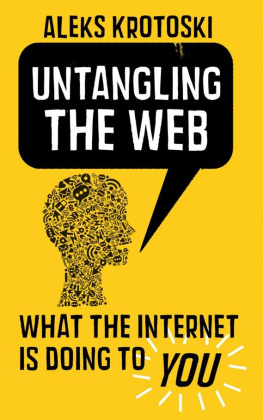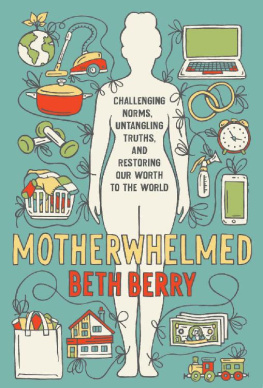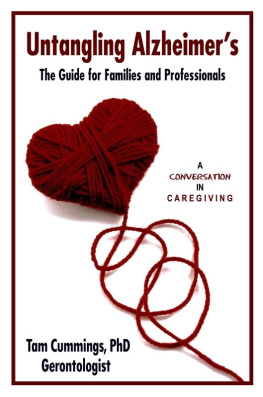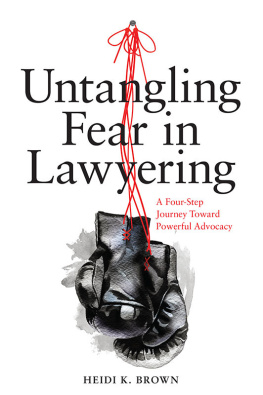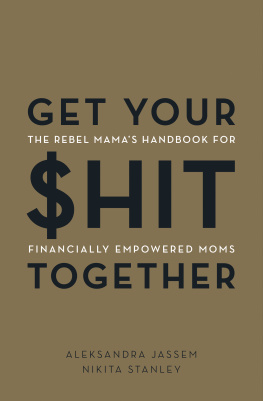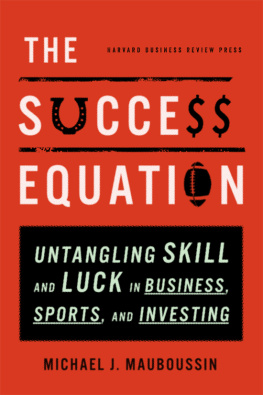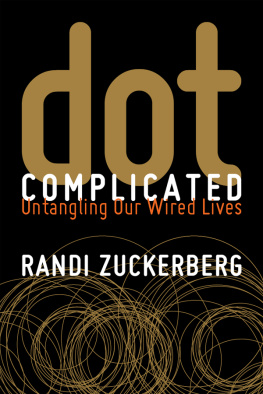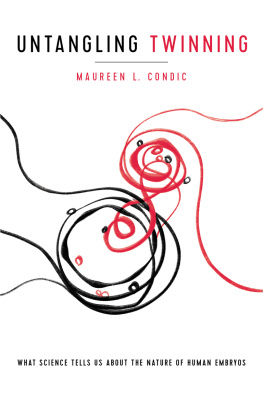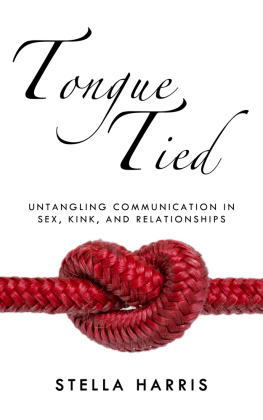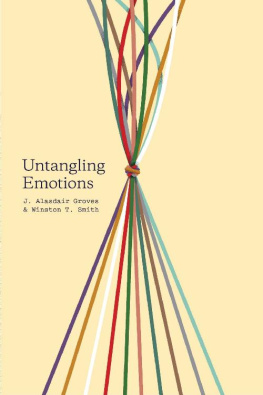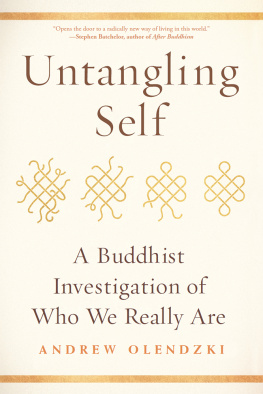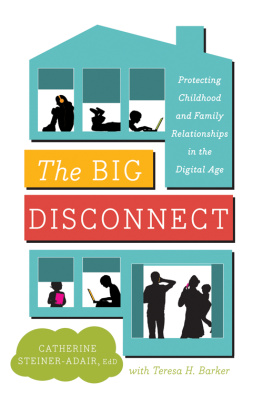This book is the product of thirteen years of research, as a journalist and as an academic. The chapters have appeared, some in more similar guises than others, in the Observer and the Guardian, on the BBC website, on BBC Twos The Virtual Revolution, on Radio 4s Digital Human, on the Digital Media and Learning blog and in The Political Quarterly. Some had their first iterations as lectures at the University of Oxford, the University of Cambridge, the London School of Economics, the University of Glasgow, the University of Nottingham, The Economist, Google, the Royal Institution and the Internet Advertising Bureau. Theyve been presented to audiences from the UK, the US, Singapore, Taiwan, the Netherlands, Australia, Greece, Denmark, Belgium and France. Most importantly to my personal sense of completion, several chapters have been adapted from my PhD.
It is, therefore, unsurprising that there are many people who contributed to these pages. Id like to thank my editors Katie Roden, Charles Arthur, Caspar Llewellyn-Smith, Killian Fox, Ian Tucker and Phil Daoust for harnessing my verbosity; my research supervisors Julie Barnett and Evanthia Lyons for keeping me on target; my parents Danuta and Wojciech for their continuing and enduring support; my friends Amber Templemore-Finlayson, Devina Sivagurunathan, Marie Campbell, Kate Bevan, Sam Pinney, Denise Hanrahan, Roslyn Smith and Kaitlin Thaney for reading early versions of these chapters; Gregor and Ally McMurtrie for the loan of their home in idyllic Findochty, Scotland to hammer out draft two; and Ben Hammersley for helping me cross the finish line.
INTRODUCTION
More than two billion people, from Peterborough to Pretoria, from Toronto to Timbuktu, from Amsterdam to Abu Dhabi, use the world wide web. There are over 2.5 billion searches for information and insight on Google every day. Nine hundred million of us connect and share on the worlds largest social network, Facebook. More than 500 million of us tell friends, lovers, strangers and stalkers what we had for breakfast on Twitter. And when we want to shop for books or balalaikas, hundreds of millions more point our browsers at Amazon and eBay. In just two decades the web has become inextricably tangled into the fabric of our lives.
In the UK, the government has poured billions of pounds into getting people connected. Already, 82.9% of the adult population has used the internet at least once. All our essential services from ordering library books to getting a drivers licence to voting for our local councillors are being moved into virtuality. Like it or not, soon everyone will have to be online.
Many of us dont like this, however. We fear it. We dont understand it. We think the technology is replacing us at work, diluting our communities, stealing away our children, upending morality, taking control of our lives. We read about online cults and internet extremism, about cyber-infidelity and computer addiction, about fraud, identity theft and antisocial behaviour. We are afraid this new worldwide order is taking something essentially human away from us.
At the same time, we are bombarded with headlines that claim this communication technology is a panacea. We see stories of how the web has been harnessed to topple corrupt governments, to transform media empires, to empower people just like us to do exceptional things.
With so much information coming from so many sides at such a pace, its no wonder were confused. No wonder that, in taxis, on trains, in pubs, over dinner, in companies and in government offices, youll hear people asking: what is the web doing to us, to our kids, to society? What can we do to harness it? Should it be stopped? Can it be?
The web is under furious scrutiny from scientists and academics too. At Tel Aviv University, for instance, Dr Katelyn McKenna has spent most of her career investigating claims that the web is making us antisocial. At MIT and the University of Amsterdam, Professor Sherry Turkle and Dr Tom Postmes have spent 20 years looking at the effects of online anonymity. And at Sheffield Hallam University, Dr Feona Attwood has analysed how the web has affected our attitudes to sex, and how different our bedroom behaviours are since the advent of networked technologies like teledildonics and easy access to pornography. Much of this valuable research is hidden behind the walls of the ivory tower, however. All too often, public debate is fuelled by nothing but half-truths and misunderstandings. As a result, our access to the web is threatened by groups that want to regulate it and shut it down, and they are winning hearts and minds with misinformation.
Whats lacking in this battle is evidence, and thats where this book comes in. I have done time inside the ivory tower. I am part of the internet research community and have been for over a decade; my PhD looked at the psychology of online communities, and my current focus is on what it means to put our faith in the machine. Ive also spent the last 15 years as a technology journalist for the BBC and the Guardian, translating web science into a language that can be understood outside academia. As well as the scientists mentioned above, I have interviewed everyone from Sir Tim Berners-Lee, founder of the world wide web, to Mark Zuckerberg, founder of Facebook. Ive spoken with developers who want to solve world hunger, inequality and death, and with bloggers who simply want to make people laugh.
In the pages that follow, Ill attempt to untangle the unfounded claims, the rumours and the scaremongering about the web from the reality. In the first section, Untangling me, Ill talk about how this new technology affects our minds and our bodies from sickness and health to sex and death. As we lean on it for information about ourselves, we also upload valuable information that will be useful after we die. Can we live forever? Should we want to? And what does the way we use the web say about what we value about us and each other? In the second section, Untangling us, Ill unpick the modern meaning of family, home and the neighbourhood. Do we love and hate in the same way that we always have done, or is something new going on? Ill also take a look at what the web is doing to our kids. Finally, in the third section, Untangling society, youll get the lowdown on the biggest questions of all. How is the web upending modern society? Will it lead to a global social revolution, or is the government already using it to control us? Are we losing our national identities and culture, and what has changed about what we believe in?
The book ends with a look at an issue thats beginning to make its way into conversations: who is designing the web? How are these men and women in technology hubs from Silicon Valley in San Francisco to Silicon Roundabout in London creating a clever and thoughtful computerised service that address our needs, when all they have to play with is binary computer code? What do the motivations of the 21st-century human being look like? And what would a human being created by the web want and need?
Everyone is now familiar enough with the web to have an opinion about it, but no one really knows whether theyre right or wrong. What is the new information revolution really doing to us? In this book, youll find out.
UNTANGLING ME
In the spring of 1996, an enterprising American college student named Jennifer Ringley connected a webcam to her computer and began seven years of uninterrupted self-exposure. JenniCAM, as she eventually named it, was the first no-holds-barred lifelogging experiment on the world wide web. Every 15 seconds, the webcam uploaded another still image from the mundane to the erotic exposing the uncensored life of a young woman coming of age.

